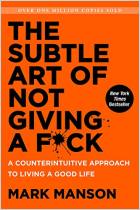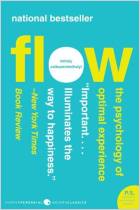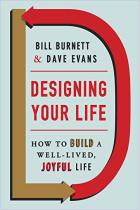
A review of
The Courage to Be Disliked
The Japanese Phenomenon That Shows You How to Change Your Life and Achieve Real Happiness
The review below was first published in the getAbstract Journal on 27 ago. 2021.
We’ve reviewed this title for you as we currently cannot offer a summary.
We’ve reviewed this title for you as we currently cannot offer a summary.
Approachable Adler
by David Meyer
Ichiro Kishimi and Fumitake Koga, who are followers of Adlerian psychology and best-selling authors, present Adler’s principles in the form of an accessible fable.
















Comment on this review or Comenzar discusión
1. Never compare yourself to others:
Life isn’t a competition, and if you see it as such, you’ll take other people’s successes as your defeat, and vice versa. Try not to spend so much time on social media.
2. Freedom is being okay if people dislike you:
Humans wired to thrive in communities so the fear of disapproval makes people freeze inside. Being okay with people not liking us is freedom.
3. All problems are Interpersonal Relationship Problems:
People are afraid of being judged by others. If there were nobody else in the world, our problems as we know them wouldn’t exist. All our problems have the touch of other people in some way or the other.
4. Don’t live to satisfy others:
Get rid of the need to please others. Stay true to yourself. Live your life in complete freedom and according to your own principles. Always remember that what other people think of you is none of your business.
5. Stop using trauma as an excuse:
Discard the victim mentality. Our past experiences – including traumas – affect us not by the events themselves, but by the meanings, we attach to them.
6. Embrace individuality:
Accept and celebrate your unique self. Overcome the burden of social expectations. Lifestyle is not something given, but something chosen. Be authentically You.
7. You’re not actually inferior:
Don’t use your inferiority complex to give up on things, rationalize self-pity, and resolve to be helpless. Don’t use it as an excuse not to do things; “I don’t have a degree, so I can’t succeed.”
8. Focus on your own tasks:
When people don’t like us, that is their problem. Before helping others, you have to help yourself, otherwise, you will end up resenting the very people you’re trying to help.
9. Put yourself on the same level as others:
Never put yourself above or below anyone. Instead of building hierarchical relationships, build horizontal ones that put you both on the same level as each other. If someone hasn’t done an adequate enough job, let them know your expectations without passing judgment.
10. You can change your life, if you want to:
If you believe that the past determined your present and therefore your future, then you’ve already decided on your future. Changing your lifestyle and reaching for your dreams opens you up to failure, rejection, and criticism.